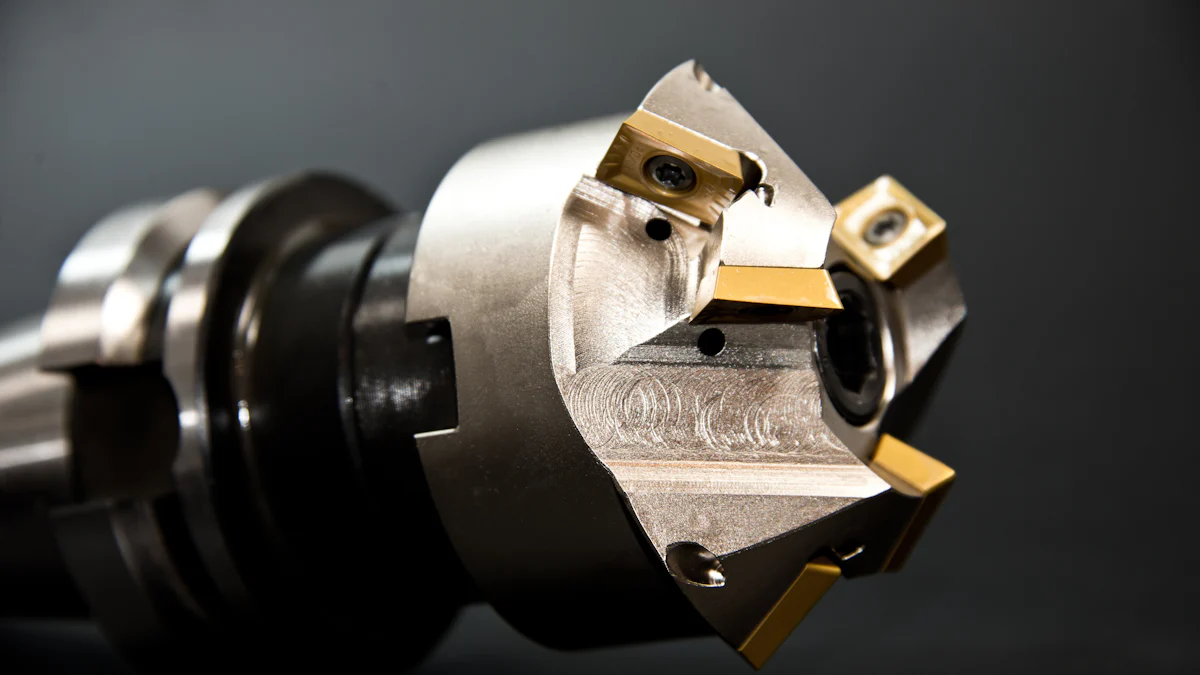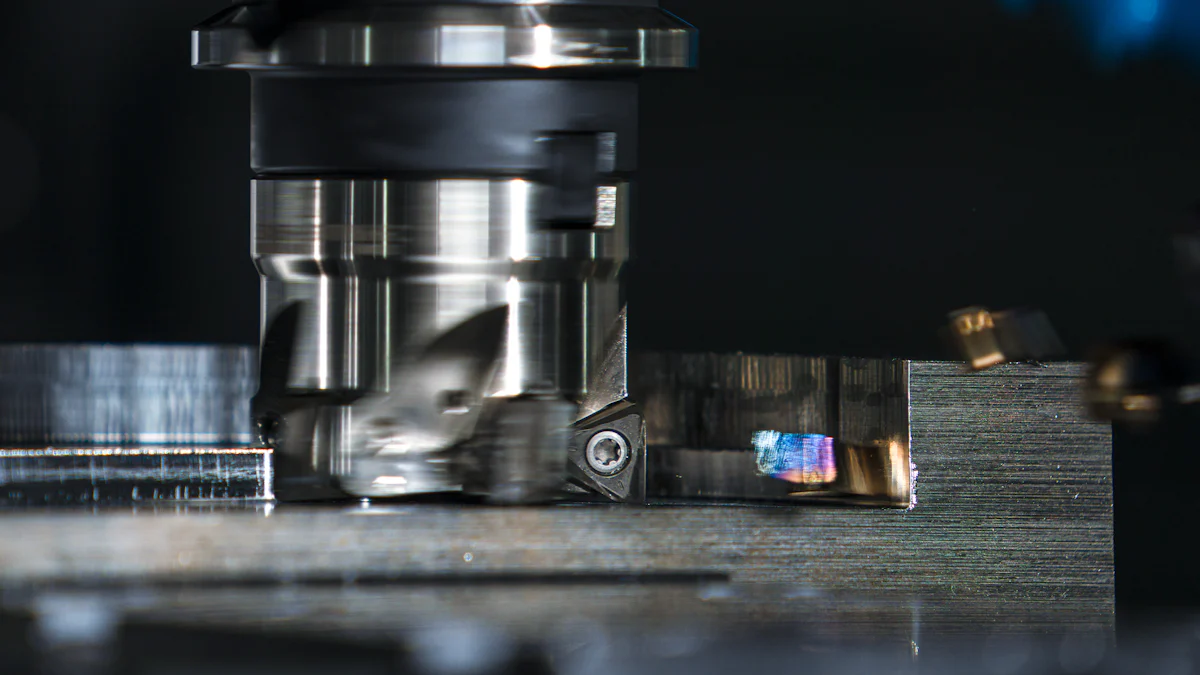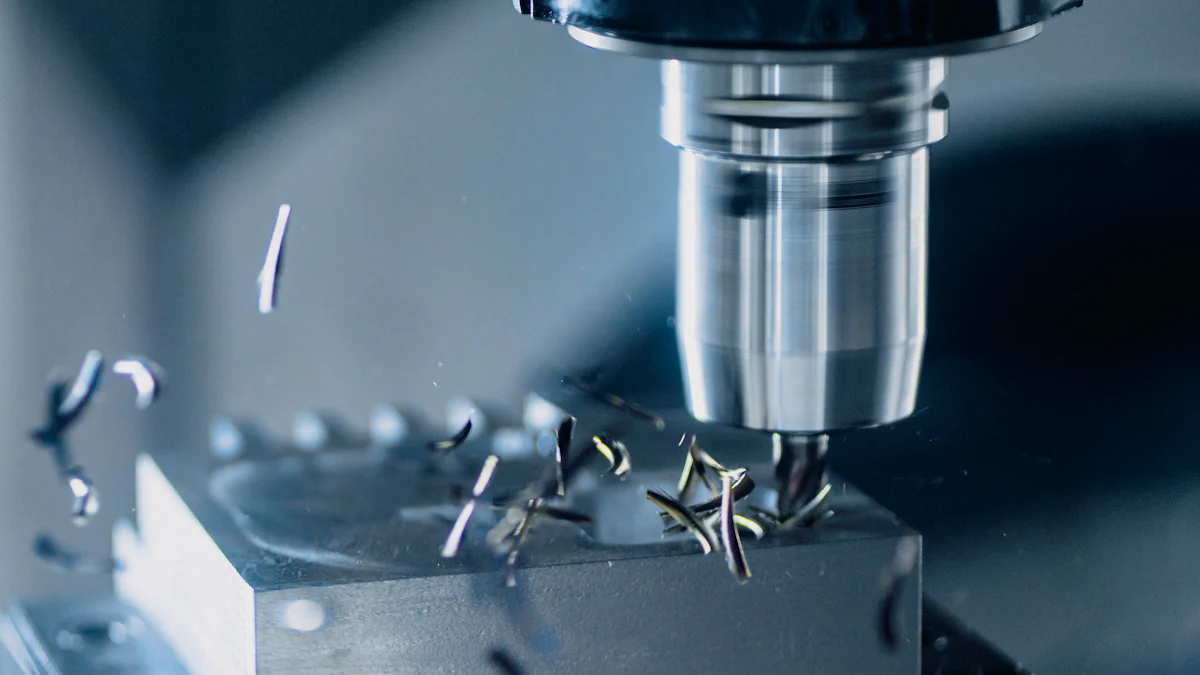
Choosing the right worm gears CNC machining supplier can transform your production outcomes. Precision machining ensures tight tolerances, which are critical for smooth operation and durability. For example, CNC machining can achieve a tooth profile accuracy of ±0.01mm, delivering seamless performance. A reliable supplier also reduces waste, accelerates production, and minimizes defects, saving costs long-term.
Key Takeaways
- Choose a CNC supplier that focuses on accuracy and exact fits. This helps worm gears work well and last longer.
- Find suppliers with good quality checks and proper certificates. This ensures they follow rules and make reliable products.
- Check how well a supplier communicates and supports customers. Good communication builds trust and makes teamwork easier during production.
Unique Requirements for Worm Gears

Precision and Tight Tolerances
When it comes to worm gears, precision is everything. I’ve seen how even the smallest deviation can disrupt performance. That’s why tight tolerances are non-negotiable. CNC machining techniques like milling and grinding ensure exacting tolerances and high-quality surface finishes. For example, in automotive steering systems, a tooth profile accuracy of ±0.01mm is essential for smooth operation. Consistency and precision achieved through CNC machining make all the difference in demanding applications.
| Aspect | Requirement |
|---|---|
| Machining Techniques | CNC milling and grinding |
| Tolerances | Exacting tolerances |
| Surface Finishes | High-quality finishes |
| Backlash | Minimal |
| Applications | Demanding applications |
Material Selection and Durability
The material you choose for worm gears directly impacts their durability. I always recommend high-quality metals like alloy steel, bronze, or brass. These materials offer superior strength and wear resistance, which are critical for long-term efficiency. For high-friction applications, phosphor bronze is an excellent choice. Its corrosion and wear resistance make it ideal for components exposed to friction. Stainless steel and titanium also perform well in harsh environments, ensuring your worm gears last longer and perform better.
Customization for Specific Applications
Every industry has unique needs, and worm gears must adapt to meet them. I’ve worked with suppliers who specialize in creating custom solutions for various applications. For instance, in the automotive sector, worm gears enhance stability in steering mechanisms. In aerospace, they play a vital role in aircraft wing actuators. Heavy machinery relies on them for high-torque loads, while robotics demands precise motion control. Agricultural equipment also benefits from durable worm gears designed for tough environments.
| Industry | Application Description |
|---|---|
| Automotive | Used in steering mechanisms and braking systems for stability and security under load. |
| Aerospace | Essential in actuation systems and control mechanisms, particularly in aircraft wing actuators. |
| Heavy Machinery | Ideal for conveyors and heavy lifting equipment due to their ability to handle high torque loads. |
| Robotics | Provides precise and smooth motion control in medical robotics and robotic arms. |
| Agricultural Equipment | Durable components for tractors and harvesters, designed to withstand harsh environments and heavy use. |
Evaluating a Worm Gears CNC Machining Supplier

Technical Expertise and Equipment
A supplier’s technical expertise and advanced equipment determine the quality of worm gears. I always look for suppliers who use high-precision CNC machines capable of achieving tight tolerances and complex designs. For example, CNC machining ensures precise tooth profiles, which are critical for smooth operation and efficiency. Advanced equipment also allows for the integration of features like lubrication grooves and reinforced designs.
| Design Factor | Impact | CNC Contribution |
|---|---|---|
| Gear Ratio | Speed reduction and torque output | Precise tooth profiles for exact ratios |
| Tooth Profile | Smoothness and efficiency | High-resolution machining for perfect profiles |
| Material Selection | Durability and performance | Precision cutting for a wide range of materials |
| Lubrication System | Friction and wear reduction | Integration of oil grooves or channels |
| Backlash Minimization | High-precision applications | Tight tolerances achievable through CNC |
| Load Capacity | Stress handling | Reinforced designs with optimized material usage |
Quality Assurance and Certifications
Certifications reflect a supplier’s commitment to quality. I prioritize suppliers with ISO 9001 certification for quality management. For aerospace or medical applications, AS9100 and ISO 13485 certifications ensure compliance with industry standards. A strong Quality Management System (QMS) is essential. It includes part traceability, regular audits, and advanced measurement systems to maintain consistent quality. These practices guarantee that the worm gears meet your exact specifications.
Material and Design Capabilities
The right material and design capabilities enhance the performance of worm gears. I recommend suppliers who work with high-quality metals like alloy steel, bronze, and brass. These materials offer superior strength and wear resistance. Advanced coatings can further reduce friction and extend the lifespan of the gears. Precision engineering ensures that every component fits perfectly, which is critical for efficient operation.
Cost-Effectiveness and Value
Cost-effectiveness goes beyond the initial price. CNC machining reduces waste, improves efficiency, and ensures consistent quality. This lowers long-term production costs. Advanced surface treatments, such as mirror-like finishes, enhance gear performance and durability. A reliable worm gears CNC machining supplier delivers value by combining precision, durability, and competitive pricing.
Communication and Customer Support
Strong communication builds trust. I value suppliers who maintain clear and open communication channels. Regular updates on project progress and challenges ensure smooth collaboration. Using tools like direct messaging and document sharing enhances efficiency. Establishing clear expectations for quality and deadlines helps avoid misunderstandings. A supplier who listens and adapts to your needs becomes a true partner in success.
Assessing Supplier Reputation and Reliability
Reviews and Testimonials
I always start by checking reviews and testimonials when evaluating a supplier. Customer feedback reveals a lot about their reliability and service quality. I recommend visiting the supplier’s website or social media pages to find testimonials from previous clients. These insights help me understand how well they meet customer expectations. References from past customers also provide valuable information about their performance and trustworthiness. A supplier with positive reviews and strong testimonials earns my confidence.
Past Projects and Case Studies
Examining past projects gives me a clear picture of a supplier’s capabilities. I’ve seen suppliers achieve remarkable results in various industries. For example:
- A pizza crust manufacturer extended gearbox life to 9,000 hours by switching to synthetic gear oil, reducing maintenance costs.
- An aerospace actuator system used lightweight titanium worm gears to exceed performance benchmarks under extreme conditions.
- An industrial conveyor system benefited from heavy-duty worm gears made of heat-treated steel, significantly improving lifespan and reliability.
These examples highlight the importance of choosing a supplier with proven expertise in worm gear production.
Certifications and Industry Standards
Certifications assure me that a supplier adheres to strict quality standards. I prioritize suppliers with ISO 9001 certification for quality management. For aerospace applications, AS9100 certification ensures compliance with safety and risk management standards. Medical applications require ISO 13485 certification, which guarantees regulatory compliance and robust quality systems. These certifications demonstrate a supplier’s commitment to delivering high-quality worm gears.
Production Capacity and Lead Times
A supplier’s production capacity directly impacts lead times. I always confirm that their factory can handle my order volume without delays. Overloaded factories often struggle to meet deadlines, which can disrupt production schedules. Advanced equipment and skilled workers also play a crucial role in maintaining efficiency. A reliable supplier evaluates their capacity before accepting orders, ensuring timely delivery of high-quality products.
Choosing the right CNC machining supplier for worm gears requires careful consideration. I always focus on key factors like reliability, cost-effectiveness, and scalability. A supplier must meet your quality standards and adapt to your production needs.
Look for suppliers who embrace innovation and maintain ethical practices. Their commitment to sustainability and regulatory compliance ensures long-term success.
Thorough research is essential. Compare expertise, demand transparency, and evaluate their ability to handle complex challenges. A proven track record and ISO certification reflect their dedication to precision and quality. By prioritizing these aspects, you’ll secure a partner who delivers exceptional results.
FAQ
What makes CNC machining ideal for worm gears?
CNC machining ensures precision and consistency. I’ve seen it deliver tight tolerances, smooth finishes, and custom designs, which are essential for high-performance worm gears.
How do I verify a supplier’s quality standards?
Check for certifications like ISO 9001 or AS9100. I always ask for case studies or references to confirm their commitment to quality and reliability.
Can CNC machining reduce production costs?
Yes! CNC machining minimizes waste and defects. I’ve noticed it improves efficiency, which lowers long-term costs while maintaining exceptional quality.
Send your message to us:
表单提交中...
Post time: Jan-27-2025